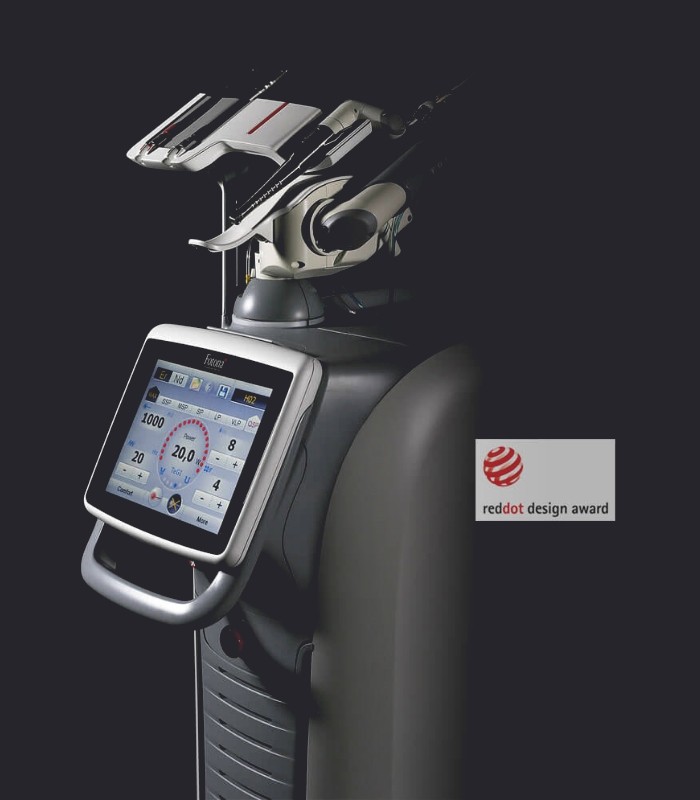We are the only dental office in New Mexico that relies on a proven, science-backed approach to provide lasting relief from chronic sleep problems as well as jaw, head, and neck pain.



Dr. Jariwala began her career as a general dentist and she wanted to do more to help people before their sleep issues and chronic pain took a serious toll on their lives. Today, she has combined her general dentistry experience with additional sleep medicine and TMJ training so, her dental patients can achieve the comfort and health they deserve.
“I faced challenges for many years due to sleep apnea and finding a solution has been a challenge. I was issued a face mask by the VA, but the mask was difficult to acclimate. I received a referral to the Center for Dental Sleep Medicine & TMJ of New Mexico a few months ago through the VA. From the very start of the process (QMS) to onboarding with Dental Sleep Medicine, I was impressed. The staff is very friendly and professional; furthermore, Dr. Jariwala is a subject matter expert in her field of study. After going through their process for a sleep apnea mouthpiece, and a few months later, I can sleep all night. There are too many benefits to list here; however, I highly recommend Dental Sleep Medicine & TMJ of New Mexico for sleep or mouth-related challenges you may be experiencing.”
“I've had an excellent experience here at the Center for Dental Sleep Medicine & TMJ of NM! I have mild sleep apnea and also TMJ and I've gotten very good results from the devices and recommendations that Dr. J and her staff have given me! I love that I don't have to use a CPAP machine to get a good night's sleep, just a special mouthguard, and I feel rested and energetic! I highly recommend this place, the staff, and doctor are very professional and pleasant!”
“Exceptionally good service! Tech Arinda and Dr. Jariwala listened carefully to my many years of
using an OSAS oral appliance. Then they crafted a new appliance with added features I'd never
experienced before. Fits comfortably.
Result: I am sleeping well through the night without snoring (no more annoying my wife). Thank
you!”
“I give Dr. J and Center For Dental Sleep Medicine & TMJ an A+. I needed something to stop snoring or my wife would not allow me to travel with her anymore. I tried several remedies that didn’t work. Eventually, I bought an anti-snoring mouthpiece online that helped my snoring. However, it was too large and uncomfortable to wear all night. Dr. J made a mouthpiece that is custom fitted for me. It is easy to wear all night. My prior normal “snore score” was above 50. When I wear the mouthpiece, it is between 1 to 4.”
Problems like snoring and sleep apnea can be caused by loose tissue found at the back of the throat. With fast and pain-free Nightlase treatment, we can actually tighten this tissue to open up the airway, leading to better breathing during sleep, more restorative rest, and quieter nights for everyone.

Finding someone to help you improve your sleep is a difficult process. After all, this is a very important aspect of your life. Fortunately, we are always available to help you achieve the deep sleep you deserve. If you have any questions or concerns, we are always happy to help. In the meantime, here are some things for you to take into consideration.
Obstructive Sleep Apnea (OSA) is a common chronic condition that occurs when the soft tissues collapse and block the airway while you sleep. This can cease breathing hundreds of times per night for anywhere from a few seconds to over a minute! These repeated breathing pauses can result in reduced oxygen levels and disturbances in sleep that are noticeable during the day.
CPAP therapy involves wearing a mask that covers the nose and mouth. It is connected to a tube that allows air pressure to keep the airway open during sleep. On the other hand, oral appliance therapy consists of wearing a custom-fit mouthguard while you sleep to support the jaw in a more forward position to help maintain an open airway. Sometimes a combination of the two treatments is ideal to address sleep apnea.
Oral appliances are customized using impressions. The impressions are sent to a dental lab where the oral appliances are made. Once they are ready, you can return to the office for a fitting. Then, we will adjust the appliance to maximize its comfort and effectiveness. We will show you the best ways to clean and maintain the appliance.
Many patients find oral appliances comfortable to wear in comparison to a sleep mask. Oral appliances are customized to fit your mouth and made of lightweight material. Oral appliances are also customized to ensure maximized comfort and effectiveness. If you ever have any issues with your oral appliance, don’t hesitate to reach out to our team so we can help.